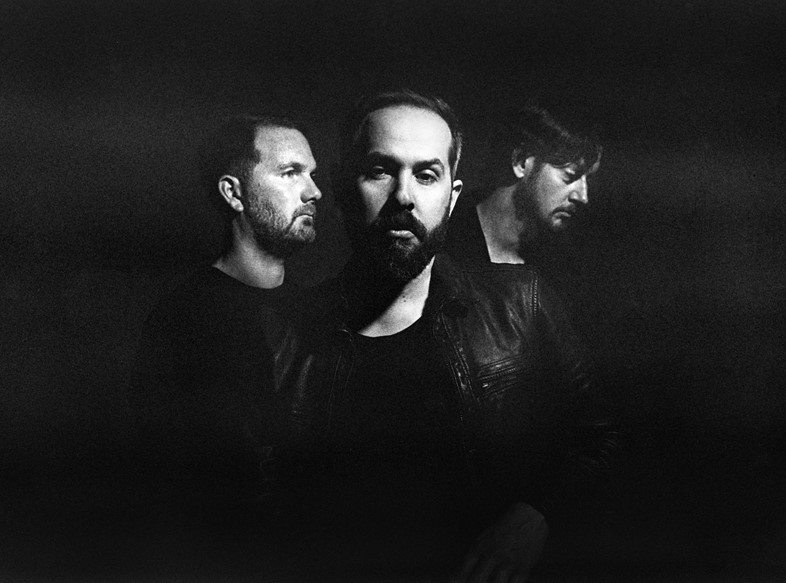Cigarettes After Sex are back this week with an intimate new album, Cry. Here, Paul Moody talks to Greg Gonzalez, the band’s frontman, about why the songs on this record were the hardest to write
- TextPaul Moody
When Greg Gonzalez was writing material for his band’s remarkable new album, Cry, there was one particular track which drove him to distraction. No matter how hard he tried, or what mood he was in, he simply couldn’t finish it.
“For two years I had the verse and the chorus of what would become Falling in Love,” he explains down the phone from his hotel room in Denver, Colorado.
“It was the hardest song I’ve ever had to write. No matter what I tried, the words didn’t feel genuine. I knew it would only work if it reflected a true experience. It was only when I fell in love again, when the album was being mixed, that I felt I could finish it.”
It’s a story which sums up the seductive appeal of Cigarettes After Sex. Where most bands over-emote in search of a connection, Gonzalez – as the band’s name suggests – does the opposite, articulating feelings at those points when faking it simply isn’t an option. “I don’t see it much in other artists, but I have to talk about eroticism, sensuality and sex in my music,” he says. “Because if I’m talking honestly about relationships it feels wrong to leave any of those details out.”

Cigarettes After Sex’s intimate approach also focuses on those fleeting seconds in a relationship which, with hindsight, feel pivotal. Sunsetz, on their debut, is about driving away from an ex-girlfriend’s house and watching her wave in the rear-view mirror.
“The way memories are selective is strange,” he says. “You get a feeling sometimes that it’s your destiny to do certain things. From a very early age I had an unshakeable belief that I would end up making music. It was never an option for me to stop. At the same time, I only had a very blurred vision of how it would happen.”
Originally formed in 2008, Cigarettes After Sex’s success has been the archetypal slow burn. Having released their debut EP in 2012, it wasn’t until the band began chalking up millions of plays on YouTube in 2015 – thanks in part to a shimmering dream-pop cover of REO Speedwagon’s soft-rock classic Keep on Loving You – that they generated a groundswell of interest. Over the last three years this has seen the band play headline shows around globe, sell over 550,000 copies of their self-titled debut album and draw comparisons with the master of bedroom seduction, Leonard Cohen.
This voyeuristic ability to pull back the covers on life’s more intimate issues can be traced back to the singer’s childhood in El Paso, Texas. Growing up, he fell in love with movies thanks to his dad, whose job involved recommending films for local stores to stock on VHS. Naturally drawn to the aesthetic and emotional pull of European cinema – he cites Krzysztof Kieślowski’s Three Colours trilogy as an early influence – he gravitated towards introspective British rock (The Smiths, Cocteau Twins) and, in particular, 60s folk icon Nick Drake.
Having moved to New York in 2013, he took a job at the historic Beekman Theatre on the Upper East Side and began writing music inspired by everything from Antonioni’s L’Avventura to Françoise Hardy’s 1971 album La Question, stumbling upon a cinematic formula which has since brought Cigarettes After Sex’s music to the singer’s attention. “La Question is my favourite album of all time,” he says. “I almost reinvented my identity around it. So when I heard Françoise loved our music it felt incredibly validating. We met and talked about collaborating on writing music together, but at the time I couldn’t think about anything but our new record.”
Recorded in Majorca, Cry finds Cigarettes After Sex’s reverb-drenched meditations on love and life shot through with a Mediterranean warmth. Lyrically, however, Gonzalez continues to venture into territory where most bands fear to tread. Hentai, inspired by the highly sexualised Japanese art form, features the lyric: “Told you I wanted to die in an airplane crash / Over the ocean / Thought it was romantic.”
“The album stitches together lots of different characters and themes, but ultimately it’s about romance, beauty and sexuality,” he says of these highly charged lo-fi lullabies. “I called it Cry because bringing someone to tears is the most powerful thing that music can do, whether it’s happy or sad. That’s what I want our music to achieve.”
Cinematic, sensual, and designed for late nights: Cry will have even the hardest heart swearing there’s something in their eye.
Cry is released October 25, 2019.











